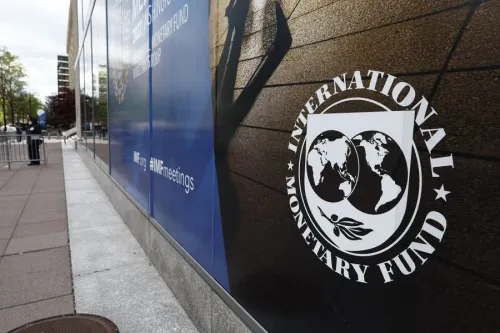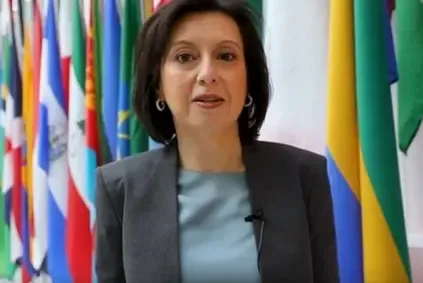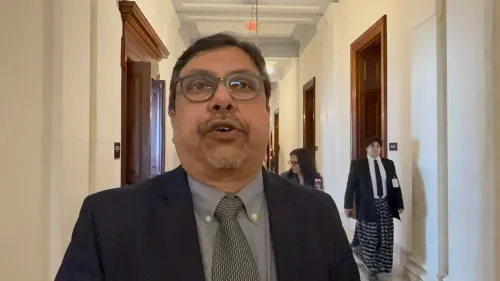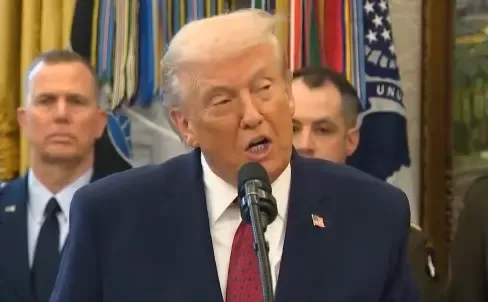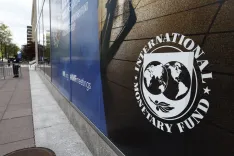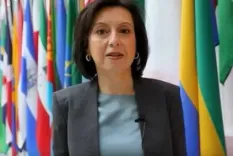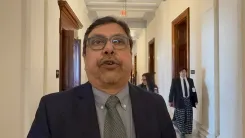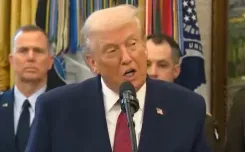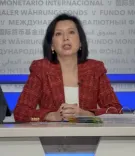Authorities Prepare to Execute Arrest Warrant for South Korean President Amid Rising Tensions
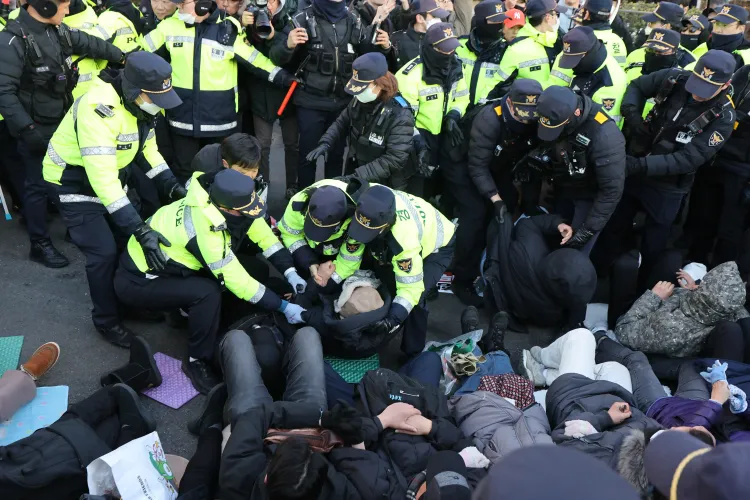
Seoul, Jan 2 (NationPress) Concerns are escalating regarding a potential confrontation if authorities proceed with a warrant to arrest South Korean President Yoon Suk Yeol, who has declared his intention to fight to the end.
The state anti-corruption agency is poised to execute the warrant as early as Thursday after the Seoul Western District Court granted it on Tuesday in response to Yoon's brief declaration of martial law on December 3.
This marks a historic moment as Yoon becomes the first sitting South Korean president to face the prospect of arrest.
The Corruption Investigation Office for High-ranking Officials (CIO) is preparing to carry out the warrant while minimizing disruptions, amidst fears that the presidential security service and Yoon's supporters may attempt to obstruct the process, according to reports from Yonhap news agency.
About 30 supporters were forcibly removed by police after breaching a police barrier to demonstrate outside the presidential residence.
Supporters were carried away, some shouting Yoon's name.
Yoon sent a message of solidarity to his supporters gathered outside his residence the day prior.
"Due to internal and external forces infringing on its sovereignty and the activities of anti-state groups, South Korea is now in danger," Yoon stated in his message. "With you, I will fight to the end to protect this country."
Yoon's attorney asserted that should police attempt to enforce the warrant on behalf of the CIO, the presidential security service would be empowered to arrest them on charges of abuse of power and obstruction of official duties.
The legal team for Yoon has filed an injunction to suspend the warrant's effect, deeming it illegal.
The CIO requested the warrant after Yoon failed to respond to three summonses for questioning as part of its joint investigation with the police and the defense ministry's investigative unit regarding the martial law declaration.
While warrants are typically executed swiftly post-issuance, the CIO appears to be cautious about how and when this one is executed, given that it involves a sitting president.
The presidential security service has indicated it will implement security measures in accordance with due process following the issuance of the warrant, leading observers to suspect that the security service may prioritize Yoon's protection over cooperating with investigators.
The CIO has pledged to execute the warrant, which will expire on Monday.
In addition to the detention warrant, the court has also authorized a search warrant for the presidential residence, providing exceptions to laws that typically prevent searches in areas associated with military or official secrets without consent.
Previously, the security service had obstructed investigators from raiding the presidential office on similar grounds.
An official from the security service informed Yonhap News Agency that it has not yet verified whether the exception is detailed in the warrant.
Oh Dong-woon, head of the CIO, urged the security service on Wednesday to cooperate, warning that any attempt to hinder the execution of the warrants could be seen as dereliction of duty and obstruction of official duties.
If Yoon is apprehended, investigators plan to transport him to the CIO's headquarters in Gwacheon, just south of Seoul, for questioning before detaining him at the Seoul Detention Center in Uiwang near the CIO's office.
Once detained, the CIO will have 48 hours to either request another warrant for Yoon's formal arrest for further detention or release him.


